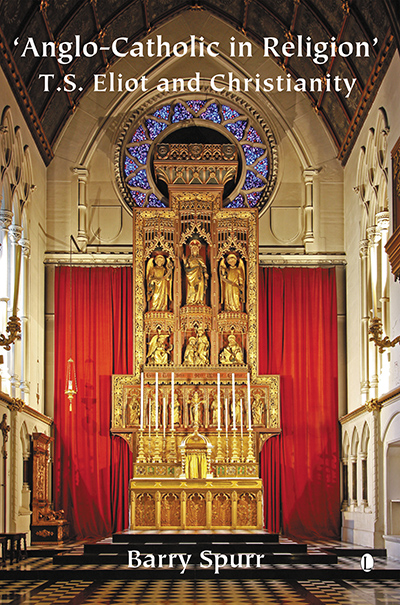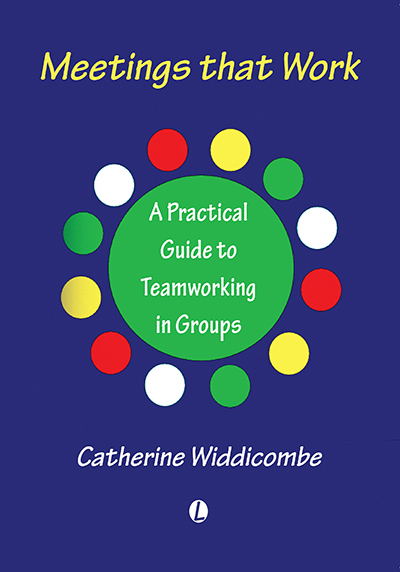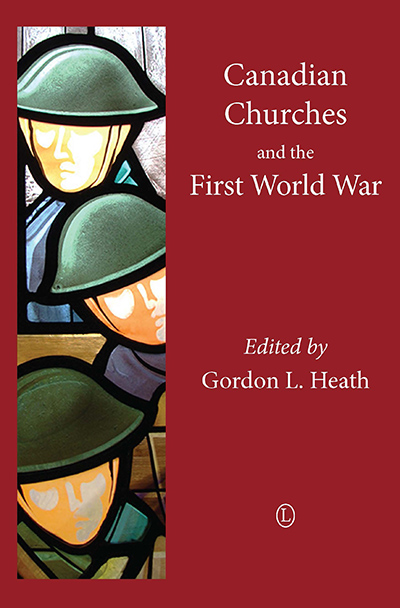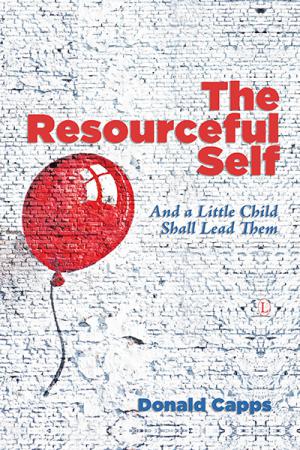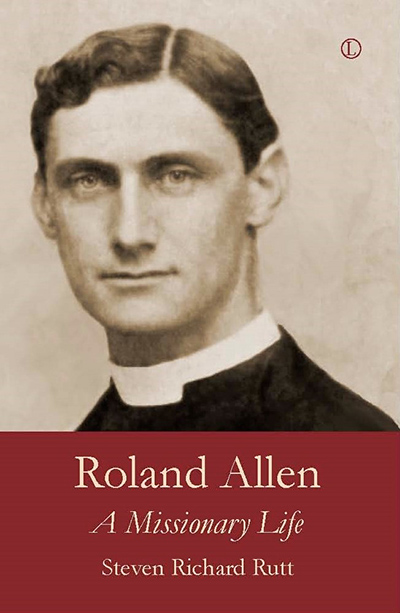Description
Barry Spurr’s eagerly-awaited, definitive study of T.S. Eliot’s Anglo-Catholic belief and practice shows how the poet’s religion shaped his life and work for almost forty years, until his death in 1965.
Incorporating significant new material from correspondence and diaries which sheds light on Eliot’s thought, the author examines the poet’s formal adoption of Anglo-Catholicism, in 1927, as the culmination of his intellectual, cultural, artistic, spiritual and personal development to that point.
Through an informed presentation and discussion of Anglo-Catholicism at the time of Eliot’s conversion and through subsequent decades, Spurr presents the first detailed analysis of the unique influence that Anglo-Catholicism’s principles and social teaching had on Eliot’s poetry, plays, prose and personal life.
This book is essential reading for all scholars and readers of T.S. Eliot and his circle; for students and devotees of Anglo-Catholicism, and scholars of the interaction between literature and theology, especially in the twentieth century. It will also be of use to senior and Honours-level undergraduates and postgraduate research students working in the fields of Modernism and its principles and belief systems, and for students of religion, especially Western Christianity and Anglicanism.
About the Author
Barry Spurr is Professor of Poetry and Poetics in the University of Sydney. He has published extensively on Renaissance and Modernist poetry, religious literature and liturgical language. He is the author of books on studying poetry, Lytton Strachey’s prose, poetry about the Virgin Mary and Anglican and Roman Catholic liturgical language reform (The Word in the Desert, also published by The Lutterworth Press).
Contents
Preface and Acknowledgements
List of Abbreviations
1. The Sources of Faith, Familial and Philosophical (1888-1917)
2. Towards Anglo-Catholicism (1917-1927)
3. The Struggle for Existence (1915-1933)
4. Anglo-Catholicism: ‘entre deux guerres’ (1918-1939)
5. Anglo-Catholic in Religion (1927-1965)
6. A Christian State
7. Anglo-Catholic in Literature
Conclusion
Appendix One: The Unpublished Letters
and Diary of Mary Trevelyan
Appendix Two: The Unpublished Papers of George Every
Appendix Three: T.S. Eliot and C.S. Lewis
Appendix Four: T.S. Eliot and Anti-Semitism
Notes
Bibliography
Index
Endorsements and Reviews
Mature and elegantly composed … The work of a scholar who is at once utterly at home with his material and yet aware of how much more there is to be said. … Spurr is perfectly equipped for the task which he set himself in this book. … [He reveals] his sensitivity to the forms of words in worship and his learning and skills as a scholar of English literature. … Fine readings of the major poems and plays. … Barry Spurr has written a major critical study of Eliot, from the inside … that deserves wide recognition and repays close reading.
Professor David Jasper, Glasgow University, in Literature and Theology (Oxford Journals)
An elegant, lucid, and meticulously researched exposition of the specific nature and history of Anglo-Catholicism.
Manju Jain, University of Delhi
An important and necessary book: powerfully and persuasively argued, richly informative.
Jason Harding, Durham University
… by far the best study of its formidable subject: erudite, in full command of the detail, and in every respect honorable. Much and properly indebted to Eliot’s correspondence with Mary Trevelyan, the book brings forward remarkably cogent and persuasive materials on Eliot’s belief and his daily practices as a Christian. The ‘sequence which culminates in faith’ has never been so clarified, even if we allow – as we should – for the darknesses of doubt and weariness in Eliot’s life. On themes with which we are more-or-less familiar, such as the Unitarianism of Eliot’s family, Irving Babbitt’s Humanism, Harvard’s Pragmatism, Bergson’s Bergsonism, Bradley’s Idealism, the English mystics – Spurr presents more aspects of these than one would have thought possible. His commentaries on ‘Journey of the Magi’ and later devotional poems are endlessly perceptive and farreaching. I thought I knew ‘Ash-Wednesday’ well; but on the evidence of Spurr’s researches, not well enough. The book is a most notable achievement.
Denis Donoghue, New York University
Barry Spurr takes us on a wonderful journey to discover the byways, varieties, glories and contradictions of a brand of Anglicanism which, even in the 1950s, was potent, and he does a good deal to establish his main thesis that it was this particular faith and practice that formed ‘the central element, the still point, in the poet’s world picture informing all that he did in his creative work’.
Peter Cornwell, in Times Literary Supplement
Spurr’s previous work on modernist poetry and on Strachey leaves him in an excellent position to take up Eliot’s religion … Spurr is especially effective in recreating Eliot’s own orthopraxis and the daily acts of devotion that defined his allegiance to Anglo-Catholicism … this book is almost surely the definitive study of Eliot’s religion and superbly fills a lacunae in the fuller understanding of the poet’s life that has existed for far too long.
C. Brad Faught, in Anglican and Episcopal History
The tone of the book is just what that of a good literary critic should be: appreciative, grateful, and generous, while at the same time not sparing in criticisms where it is due.
The Rt Revd Lord Harries, in The Church Times
Spurr’s book is comprehensively excellent on the nature and history of twentieth century Anglo-Catholicism, on Eliot’s reputation as an Anglo-Catholic, his observance of its practices, his associations within Anglo-Catholic circles, and its expressions in his creative work. … Spurr’s study elucidates the history of Anglo-Catholicism, its differences from Roman Catholicism and from Protestant traditions.
Roger Kojecky, in The Glass, No 23
No previous writer has managed to explain Eliot’s churchmanship and relate it to his poetry as well as Barry Spurr … deserve[s] a wide readership.
Paul Richardson, in The Church of England Newspaper
Eliot once said, ‘I believe that all our problems turn out ultimately to be a religious problem’. Spurr demonstrates convincingly that Eliot believe what he said and also believed that his version of Anglicanism offered the best solution to these problems. Spurr’s lucid, well-researched, judicious book should be prized by anyone who wants a better understanding of Eliot’s complex religious views and the profound influence they had on his writings.
Henry Hart, in Anglican Theological Review, Vol 93:3
There can be no doubt about it … this study of T.S. Eliot and Christianity by Barry Spurr is quite the best book on the man and his work that has yet appeared.
Peter Milward, in The Heythrop Journal, Vol 52, Issue 6
Much has been said about Eliot’s religion, and sometimes by scholars who are sympathetic to his belief, but what has been lacking is a comprehensive explanation of Anglo-Catholic history, doctrine, practice, and culture. That need is now met by Barry Spurr’s Anglo-Catholic in Religion: T.S. Eliot and Christianity, and it is hard to imagine that anyone could have done this essential work better. … The book is very welcome indeed … Having described Eliot’s religious milieu, Spurr is able to explicate many of his writings in new and convincing ways … This is the kind of book that stimulates further work rather than foreclosing it.
Ben Lockerd in Time Present, No 73
Spurr attends patiently to the specificities of the Anglo-Catholic movement as they inform Eliot’s work – aspects that scholars have tended to ignore or misunderstand. … With aplomb, Spurr makes the comparatively subtle differences between Anglo-Catholicism in its early-twentieth-century heyday and contemporary Protestantism, Anglicanism, and Catholicism visible. … The later narrative chapters are invaluable. … Spurr offers a vivid portrait of Eliot’s devotional life … [his] most compelling point may be his account of the emphasis of Anglo-Catholic devotion. … Having established Eliot as a poet of the incarnation, Spurr descends into brilliant readings of ‘Ash-Wednesday’, The Rock, and Murder in the Cathedral, revealing their peculiar dependence on Anglo-Catholic practice. He draws out with precision the liturgical form of Eliot’s poem of 1930. … Most impressively, in his account of Murder, Spurr traces the origin of some of the play’s language to The Book of Common Prayer. … Spurr’s fluent movement between discussion of Eliot’s devotional life and literary work marks the particular achievement of his book.
James Wilson, in Religion and Literature Journal, Vol 43.3
Barry Spurr’s book fills in all the details … about the Anglo-Catholic movement in the English Church … Spurr makes a very good case for taking greater notice of the language and forms of the Anglo-Catholic liturgy in readings of Eliot’s poetry and plays … This is now a largely forgotten history, and Spurr does well to remind us of what the Movement really stood for … [He] is very good in teasing out the implications of this history for Eliot … Spurr makes use of some new sources for this study, and in this respect he has new material to offer researchers in the area … None have gone into the matter of [Eliot’s] intense allegiance to Anglo-Catholicism to the same scholarly degree as Barry Spurr.
John Xiros Cooper, in Journal of Historical Biography, Vol 9
Literary critics and biographers of Eliot have often ignored his religious outlook. … Yet Spurr argues convincingly that it is impossible to understand Eliot without appreciating his Anglo-Catholicism … Spurr’s well researched and persuasively argued monograph is a welcome contribution.
Andrew Atherstone, in The Churchman, Vol 126, No 1
But the author emphasizes that while Eliot was a poet who was Anglo-Catholic, he was not an Anglo-Catholic poet, since most of his subject matter is not theological. Rather, his faith is subtly present in his poems … Spurr’s study makes a valuable contribution to Eliot scholarship in that it clarifies the poet’s approach to his faith which informs so much of his literary output.
Denise J. Stankovics, in Today’s American Catholic
Anglo-Catholic in Religion: T.S. Eliot and Christianity is a detailed and informative study which places particular importance on Anglo-Catholicism, and establishes it as a key influence on Eliot’s life and work. … For the most part his analyses are extremely effective. Eliot scholars will find his exposition of Ash Wednesday fascinating, as he illuminates its complex allusions to prayer, liturgy and the importance of the Virgin Mary. Moreover, Spurr highlights where the biblical echoes are most apparent in Eliot’s poetry, and he perceptively indicates how Eliot was influenced both by the language of the Prayer Book and by the Bible. … Barry Spurr’s monograph is relevant and timely. He has produced a seminal work on Eliot’s Anglo-Catholicism that is both convincing and cogently presented
Jeremy Diaper, in Modernist Cultures, May 2011
… well informed and highly readable … Without being either pietistic or dryly objective it places Anglo-Catholic teachings and practises within the context of Anglicanism and Christianity as a whole, and it traces, in the needed detail, the imprint of these teachings and practises on T.S. Elliot as a literary figure and churchman. It rises on occasion over and above this primary duty of exposition.
William Blissett, in The Chesterton Review, Vol XXXVII, No 1&2
Professor Spurr has written an eloquent, learned and moving book, which any one interested in Anglo-Catholicism and all lovers of Eliot’s literary output should read.
Sheridan Gilley, in The Chesterton Review, Vol XXXVII No 1&2

